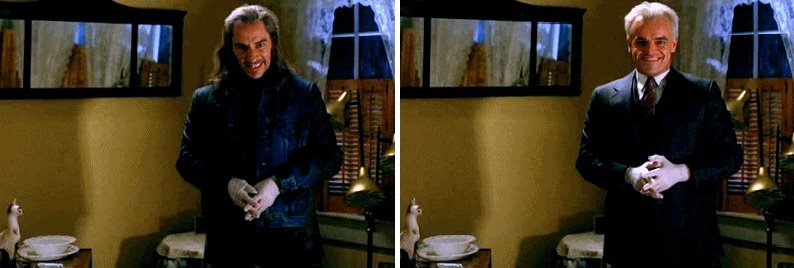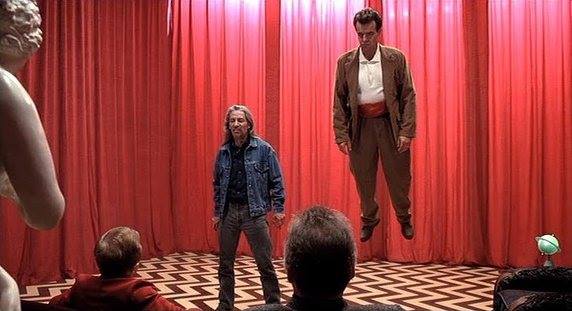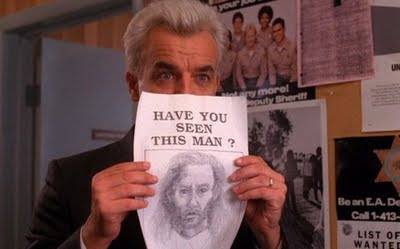51 GREATEST FICTIONAL BAD GUYS
#20. LELAND PALMER/KILLER BOB from TWIN PEAKS

Who killed Laura Palmer was the great cultural mystery of the early ‘90s and with it TWIN PEAKS quickly became something of a personal obsession for me. Its DNA was a wonderful mash-up of horror, police procedural, teen melodrama, surreality, daffiness, self-parody and film noir. I bought all the extended universe books, tried to get my hair cut like Agent Cooper (unsuccessfully), spent my Photography courses taking artistic photographs of the Castlegar woods, and developed an inclination for plaid skirts and red lipstick (thank you, December 1990 issue of Playboy). Us fans saw more than a TV show, we saw our once and future home.
Although the second season gets panned as the season that took a shit on the series (and, yes, after a few marathon viewings, it is far from being as strong as the first half), it does have its fair share of treasures. Namely the unearthing of the Black Lodge and the exploration of its erratic lore.
In the episode after Laura’s murderer was vanquished, the Bookhouse Boys (our heroes) decompress on a walk through the woods. Laura’s father Leland is a monster, but the philosophical debate focuses on what kind of monster he actually was. Some believe he was possessed by a literal demon named Killer Bob (who tormented, molested and possessed Leland as a child). Others see Bob just as Leland’s split personality, a psychological anathema that allowed him to commit multiple crimes including the rape and murder of his own daughter. It’s a compelling dialogue, one that is possibly the staple to why I find the horror genre so engaging to begin with. What is actually worse? That there are otherworldly beings intent on our corruption and/or destruction? Or that it’s really just us in the end, committing endless, needless atrocities upon ourselves (and in Leland’s case, to his own daughter)?

This is where most critics of horror lose face in my opinion. The genre (at least the supernatural sub-genre of it) isn’t all depravity and menace. It’s ultimately a message about hope, even when we know the villain will return again (in the case of Twin Peaks, we see the owl — Bob’s animus — flying ominously toward us). The horror genre lets us believe our species is inherently good. The evil that men do is the fault of shadowy entities. Do I actually believe that? No. But we developed storytelling (and this kind of paradigm) for a reason. If only to allow us to hold faith in one another for a bit longer, all the better. We only need to push our own devils back into the Black Lodge long enough to allow the utopia of Twin Peaks to survive and thrive.
Bob: “Head’s up, tails up, run you scallywags. Night falls, morning calls, I’ll catch you with my death bag. You may think I’ve gone insane, but I promise, I will kill again!”
https://www.youtube.com/watch?v=eghSAUjeD_k

